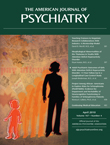Historically, fear of adverse fetal effects, medicolegal concerns, and the once accepted myth of "maternal bliss" during pregnancy dictated treatment decisions for pregnant women with psychiatric disorders. Depression in pregnancy was often discounted or neglected; frequently the customary rule for treating a depressed pregnant woman was not to do so. Increasing knowledge has made us more accountable when treating patients of childbearing age.
In this comprehensive work, Drs. Henshaw, Cox, and Barton provide an extensive review of the identification, treatment, and prevention of perinatal mental illness from the time of conception through breast-feeding and early mothering. Given that a significant number of our patients are women of childbearing age, it is essential for us to understand the biopsychosocial model of psychiatry as it relates to childbirth and as it is presented in this exceptional book.
In the book's foreword, the authors suggest that maternal mental health issues are the "core businesses of psychiatry and maternity care." Childbirth is unique in psychiatry as a major provoker of mental illness that comes with 9 months' warning. Psychiatrists are challenged to be knowledgeable about treatment decisions for women in all phases of childbearing, including pregnancy, the postpartum period, and lactation.
The most prominent work on postpartum mental illness was by Louis-Victor Marcé in 1858, yet the condition was also recognized at the time of Hippocrates as having a biological explanation. Despite the abundance of literature in the 19th and 20th centuries, there is no formal classification of puerperal psychiatric illness in ICD-10 or DSM-IV-TR.
There has been a growing interest in perinatal psychiatric research over the past 40 years, most of which is represented in this book, a valuable clinical reference for both general and perinatal psychiatrists.
Initially the authors provide a complete representation of postpartum depression, including epidemiology; risk factors such as a history of mental illness, prenatal depression, and biological and genetic influences; and smaller factors, such as personality, marital relationship, obstetric factors, and socioeconomic status. Other psychiatric morbidities that are addressed are perinatal anxiety, stress, panic disorder, obsessive-compulsive symptoms, and perinatal loss. The authors provide instruction on perinatal assessment and management, which includes biological, psychological, and complementary therapies, such as bright light therapy and omega-3 fatty acids.
The authors warn of the frequently unknown rapid onset of postpartum psychosis, the description and recognition of the initial "lucid" interval, the onset of delirium, and the fluctuating course that may well fool even a skilled clinician. The emergency nature of postpartum psychosis requires urgent hospitalization because of the possibility of suicide and infanticide. The more recent literature recognizes the fact that most postpartum psychosis is linked to bipolar disorder and cautions clinicians to monitor bipolar women who are planning families.
Perhaps the most brilliant features of this book are chapters on medication management of pregnant and lactating women with existing psychiatric illness. The authors have combed the literature for prospective and retrospective clinical trials as well as case reports on the use of psychotropic medication during gestation and breast-feeding. Only one-third of depressed pregnant women receive treatment. Assessing the risk to the mother and the fetus of medication versus the risk of maternal mental illness, along with informed consent, has posed a substantial dilemma for clinicians. Incorporated in these chapters is a decision tree for management of the woman who is pregnant or wishes to conceive.
The authors describe the impact of parental psychopathology on the well-being of the newborn. They discuss the body of evidence for the association between perinatal psychiatric disorders and short-term and long-term adverse outcomes for the children, including emotional, cognitive, physical health, and developmental outcomes. They guide the practitioner by supplying simple screening instruments, and they illustrate the role of consultation with obstetricians, midwives, and pediatricians. They suggest times for screening and potential prevention using psychosocial support or medications for recurrence.
The final pages of the book include the Edinburgh Postnatal Depression Scale, which was developed by John Cox, a pioneer in the field of perinatal mental health; Professor Cox and his colleagues created the gold standard for identifying perinatal depression. More than 20 years ago, our colleagues in the United Kingdom were early educators of perinatal psychiatrists in the United States. I remain grateful to have had them as my mentors and teachers. This clinician's handbook is a guide that must be on the shelf of every psychiatrist who treats childbearing women.

